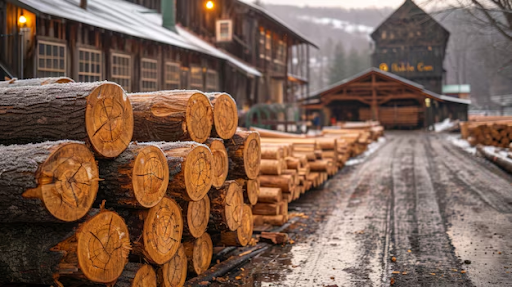As businesses strive to reduce their environmental impact and promote sustainability, incorporating eco-friendly landscaping practices into commercial properties has become increasingly important. Sustainable landscaping not only enhances the aesthetic appeal of a property but also contributes to energy efficiency, water conservation, and the overall well-being of the surrounding ecosystem. In this article, we’ll explore sustainable landscaping practices for commercial properties and discuss the benefits of using lumber supply and commercial green landscaping supplies.
Native Plant Selection
One of the key principles of sustainable landscaping is the use of native plants. Native plants are well-adapted to the local climate and soil conditions, requiring less water, fertilizer, and maintenance compared to non-native species. By incorporating native plants into your commercial landscape, you can create a visually appealing and low-maintenance environment that supports local wildlife and reduces the need for resource-intensive landscaping practices.
Lumber Supply
The lumber supply refers to the availability and accessibility of wood products used in construction, landscaping, and various other applications. When selecting lumber for your commercial landscaping projects, it’s important to choose sustainable sources that prioritize responsible forestry practices. Look for lumber suppliers that offer certified wood products, such as those certified by the Forest Stewardship Council (FSC) or the Sustainable Forestry Initiative (SFI), to ensure that the wood is harvested from well-managed forests.
Water-Efficient Irrigation
Water conservation is another crucial aspect of sustainable landscaping. By implementing water-efficient irrigation systems, such as drip irrigation or smart controllers, you can significantly reduce water consumption while still maintaining a healthy and attractive landscape. These systems deliver water directly to the roots of plants, minimizing evaporation and ensuring that water is used efficiently.
Commercial Green Landscaping Supplies
Commercial green landscaping supplies refer to eco-friendly products and materials used in the design and maintenance of commercial landscapes. These supplies may include organic fertilizers, compost, mulch, and environmentally friendly pest control products. By using commercial green landscaping supplies, you can reduce the use of synthetic chemicals, promote soil health, and minimize the impact of landscaping activities on the surrounding environment.
Integrated Pest Management (IPM)
Integrated Pest Management (IPM) is a sustainable approach to controlling pests and diseases in your commercial landscape. IPM emphasizes the use of natural, non-chemical methods to prevent and manage pest problems, such as introducing beneficial insects, using organic pesticides, and promoting healthy plant growth. By adopting IPM practices, you can reduce the use of harmful chemicals and create a more balanced ecosystem on your property.
Permeable Surfaces
Incorporating permeable surfaces into your commercial landscape can help reduce stormwater runoff and promote groundwater recharge. Permeable surfaces, such as porous pavement or permeable pavers, allow water to infiltrate the soil instead of running off into nearby waterways. This helps to reduce the risk of flooding, prevent soil erosion, and recharge groundwater supplies.
Conclusion
Sustainable landscaping practices offer numerous benefits for commercial properties, including improved environmental sustainability, cost savings, and enhanced curb appeal. By incorporating native plants, water-efficient irrigation, commercial green landscaping supplies, integrated pest management, and permeable surfaces into your commercial landscape, you can create a visually appealing and eco-friendly environment that contributes to the overall well-being of your property and the surrounding community.






